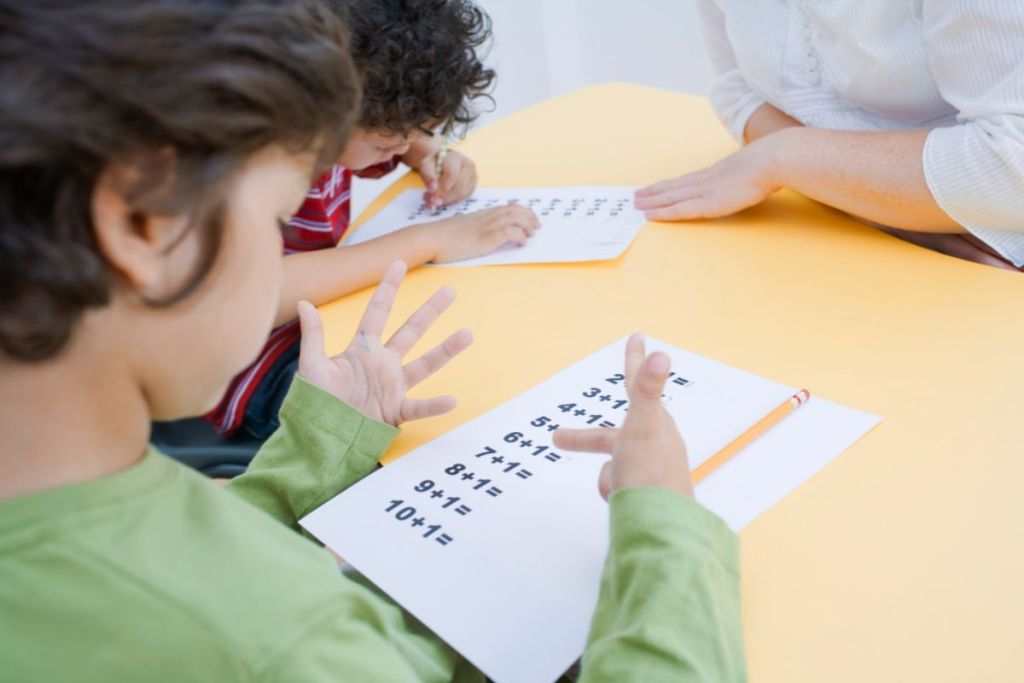The signs and symptoms of dyscalculia differ from person to person but often include trouble with mathematics.
Each individual with the condition will have a unique pattern of strengths and weaknesses.
Signs Of Dyscalculia In Adults
The symptoms of dyscalculia in older children and adults can include:
- Difficulties understanding some maths concepts such as fractions and percentages
- Difficulty counting backward
- Slow to perform calculations
- Poor mental arithmetic skills
- Poor sense of numbers & estimation
- Difficulty in understanding place value
- Addition is often the default operation
- Mathematics anxiety
- Difficulties using and understanding mathematical language
- Difficulties with automatic retrieval of information such as times tables
- Difficulties with sequencing and pattern spotting
- Difficulties with short-term, working, and long-term memory
- Difficulties remembering how to do a calculation or follow a procedure
What To Do If You’re Experiencing Dyscalculia Symptoms As An Adult
Here are some tips on what to do if you are experiencing dyscalculia symptoms as an adult:
- Consider getting formally evaluated. A clinical assessment can diagnose dyscalculia and identify your specific challenges. This allows you to get the right support.
- Be open with your employer if dyscalculia is impacting your work performance. They are required to provide reasonable accommodations under disability laws. This could mean extra time, using calculators/spreadsheets, written instructions, etc.
- Use assistive technology like calculators, accounting software, automatic bill pay, etc., to supplement your skills. Mobile apps can help with time and money management.
- Break complex tasks into smaller steps and write them down. Make to-do lists, use alarms and calendar reminders for appointments. Have someone double-check your time-sensitive plans.
- Advocate for your needs proactively. For example, ask for written calculations and numerical information instead of mental math tests. Request extra time to complete tasks involving numbers.
- Access support services like tutoring, cognitive behavioral therapy, and math learning strategies. Join an adult dyscalculia support group.
- Identify your strengths and weaknesses to shape your career choices. Pursue fields that play to your other abilities.
- Be patient with yourself, and don’t get discouraged. Many successful adults have learning disabilities like dyscalculia. With the right strategies, you can achieve your goals.
The key is to get assessed, utilize resources, and be open about your needs. Dyscalculia is manageable with the proper accommodations and support.
Signs Of Dyscalculia In Children
The symptoms of dyscalculia in children can include:
- Difficulty memorizing and recalling basic math facts like addition, subtraction, multiplication tables
- Struggling to understand mathematical symbols and processes. For example, confusing operational signs like + and x.
- Trouble grasping math concepts and relationships like place value, fractions, magnitude, sequence, etc.
- Counting slowly or inaccurately, continuing to use immature counting strategies
- Difficulty organizing numbers, performing calculations in the right order, following sequential steps
- Problems with spatial relationships and directionality like left/right, up/down, front/back
- Trouble telling time on analog clocks and with concepts like yesterday/tomorrow
- Difficulty making estimates and recognizing patterns
- Avoidance of math activities, games, and assignments due to frustration
- Challenges translating word problems into mathematical equations
- Struggling with tasks involving measurement, estimation, charts, graphs, money, etc.
- Needs to use fingers, calculators, or other aids to complete basic math
- Makes frequent calculation errors and struggles to check work accurately
Early screening and assessment are important to identify dyscalculia and provide the right interventions and support.
With the proper help, children with dyscalculia can develop math competency.
What To Do If You Notice Dyscalculia Symptoms In Your Child
Here are some tips on what to do if you notice dyscalculia symptoms in your child:
- Have your child evaluated by an educational psychologist or other specialist. Early assessment is key for support.
- Work with your child’s school to get an Education, Health, and Care plan (EHC plan) that provides formal accommodations.
- Ensure your child receives evidence-based dyscalculia interventions like individual tutoring, adapted maths lessons, and physical learning aids.
- Foster confidence through praise for effort. Focus on small successes.
- Be aware of co-occurring conditions like ADHD, which may need a broader treatment approach.
- Use maths games, apps, and activities at home to build understanding. Focus on exposure over drills.
- Frequently share strategies with your child’s teacher and track progress. Request more time, alternate assignments, or marking as suitable.
- Connect with other parents facing dyscalculia. Groups like the British Dyslexia Association provide support.
- Look into assistive tech like calculators, maths software, and recording devices to aid learning.
- Work on accommodations for timed tests, multi-step questions, and word problems.
With the proper support, children with dyscalculia can develop age-appropriate math abilities.
Early action is key, so speak to your child’s doctor and school if you have any concerns.
Contact us to book an assessment for you or your child.



